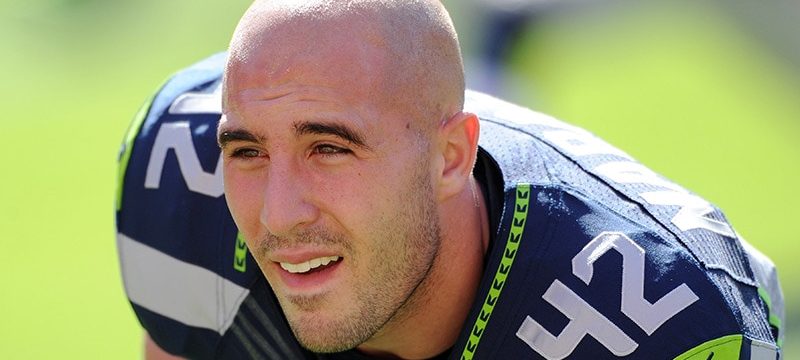The day after his former team, the Philadelphia Eagles, lost Super Bowl LVII, Chris Maragos won a $43.5 million judgment in his malpractice claim against the medical team that treated him for a knee injury.
“On Sunday, my team played the Super Bowl, and I could only watch and wonder whether I could have been out there with them had I received proper medical care,” said Maragos in a press release issued by his lawyers on February 13. “While I live in constant pain and will never get back on the field, I hope this decision sends a message to teams’ medical staffs that players are people, not just contracts.”
The case involved a meniscus tear that renowned orthopedic surgeon James Bradley, MD, and national rehabilitation institute Rothman Orthopaedics allegedly did not properly treat. Instead, the medical team prematurely advanced rehabilitation for the former defensive back and special teams ace — which ultimately caused additional damage to the knee, according to Maragos’ lawsuit.
During the 2-week trial in the Philadelphia County Court of Common Pleas, the jury heard testimony from orthopedic medicine experts, as well as Maragos’ former Eagles teammates Nick Foles, Trey Burton, and Jordan Hicks.
Maragos’ legal team also proved that Rothman Orthopaedics created two separate medical charts for Maragos, one of which failed to include key notes about his injury and recovery, according to the press release.
Bradley and Rothman Orthopaedics did not respond to Medscape’s request for comment.
Clinical Journey Gone Wrong
Maragos was 30 years old when he first injured his right knee during a game against the Carolina Panthers on October 12, 2017, according to his complaint filed in May 2018. It was his eighth year in the league. The injury was diagnosed as a posterior cruciate ligament (PCL) sprain, grade III. Bradley surgically repaired Maragos’ right knee and then oversaw and directed postoperative treatment with the support of Rothman Orthopaedics.
However, an MRI revealed that Maragos’ injury had been getting worse and that he suffered from a persistent partial tear at the posterior root of the medial meniscus and meniscus extrusion, according to the complaint.
At this point, according to testimony delivered during the trial, Bradley and Rothman Orthopaedics should have advised Maragos to limit his activities. Instead, they released Maragos, allowing him to run on dry land.
That further stressed Maragos’ knee, leading to additional complications and the premature end of his football career, according to an article published in FanNation.
“This has been going on forever in professional sports and hundreds of former players continue to suffer because their doctor didn’t stand up for them against these organizations. The care should be focused on what’s best for patients and not on the desires of a professional organization who wants to rush players back on the field,” Peter J. Flowers, an attorney for Maragos, told Medscape Medical News. “Doctors and clinicians should remember the Hippocratic oath they took to do no harm.”
Maragos’ experience could positively affect clinical care in the future, said Dion Rassias, another attorney for Maragos.
“This case and this jury may have changed the course of history by now forcing these team doctors and trainers to stop worrying about when a player might return to play and start thinking about the next 50 years of a player’s life,” Rassias said.
Maragos, now 36, started his career with the San Francisco 49ers, before winning the Super Bowl as a Seattle Seahawks player in February 2014. He then signed a 3-year contract with the Eagles before the 2014 season and got a 3-year contract extension with the team in November 2016.
John McCormack is a Riverside, IL-based freelance writer covering healthcare information technology, policy, and clinical care issues.
For more news, follow Medscape on Facebook, Twitter, Instagram, YouTube, and LinkedIn
Source: Read Full Article
